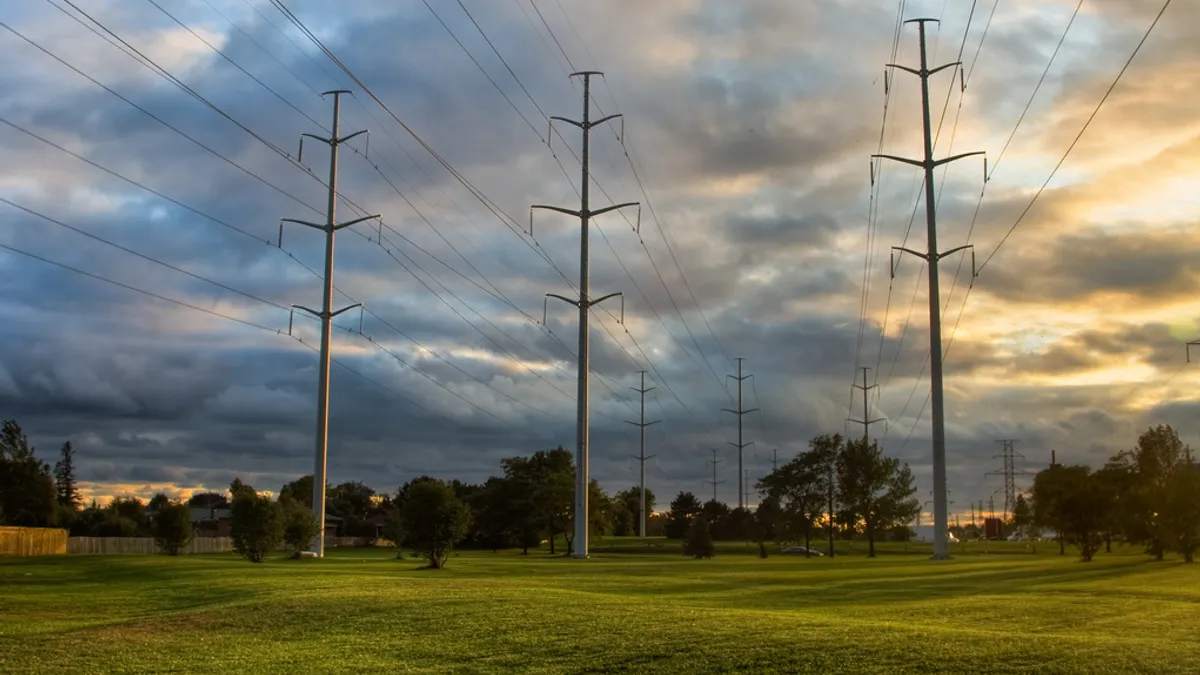Dive Brief:
- Massachusetts chose the Northern Pass transmission project to supply 9,450,000 MWh of renewable energy annually to the state's utilities as part of legislation passed passed two years ago to meet greenhouse gas goals outlined in the Global Warming Solutions Act passed in 2008.
- Northern Pass, owned by Eversource Energy, is developing a 192-mile transmission line that would move power from Hydro-Quebec dams in Canada to a substation in Deerfield, N.H. Northern Pass will provide up to 9.4 TWh of hydropower annually, while also reducing wholesale energy costs, project backers say.
- The transmission line will begin at the Canadian border in Pittsburg, N.H., and will extend 192 miles to the point where it connects to the New England electric grid. Sections of the line will also be buried along roadways to reduce the impact of views around the White Mountain National Forest. Contract negotiations are expected to be completed by March 27 and sent to regulators by April 25 for review, according to the state's timeline.
Dive Insight:
Once completed, Northern Pass would boost Massachusett's electricity supply to almost 50% clean energy, according to a statement from Gov. Charlie Baker's office. He called the announcement "an important step forward for more competitive clean energy pricing," and hailed the process that brought it about. But some stakeholders claim choosing the transmission project ignores community stakeholders.
Greg Cunningham, director of CLF’s Clean Energy and Climate Change program, said the decision "is a slap in the face to dozens of affected communities and thousands of local residents who have been outspoken in opposing this harmful proposal. Northern Pass’s developers have shown total disregard for the permanent and severe impacts this project would have on communities and the environment."
Project organizers, however, say the line will run more than 80% along existing transmission corridors to mute its impact.
In 2016, the Massachusetts Legislature passed legislation to bring new sources of clean energy to the state by 2020. Five companies proposed transmission projects to fulfill that goal earlier this year.
A previous version of this post incorrectly said that the clean energy goal of 9,450,000 MWh came from the Global Warming Solutions Act passed two years ago.















